

Browse Subjects
- TOURISM DEVELOPMENT
- TOURISM POLICY
- TRAVEL FACILITATION

from Monday 9 Dec. to Friday 13 Dec. 2024 at Geneva (Switzerland)
E-mail : Write us France : 01 85 08 36 30 Switzerland : 022 519 0440 Belgium : 023 18 35 65
- Find meeting opportunities
- Full program
- Practical Informations
- Registration form
Our Partners

Sustainable Travel and Tourism for Peace and Development - Annual International Conference 11th December, 2023, Geneva
10th International Annual Conference at Geneva See detailled presentation
Activate the filtered research
Filtered research activated, filtered research activated (click to deactivate), search for meeting opportunities among 61 conferences and platforms.
Permanent World Conferences
Key factors
Types of meetings

10th Annual International Conference on Travel and Sustainable Tourism for Peace and Development - 11 December, 2023, Geneva One week of High Level Meetings, Crossing the Spheres of the Stakeholders The halfway point between the PORTO-ALLEGRE FORUM and the DAVOS FORUM ; the platform for the creation and development of projects for peace and SDGs.
Home > Full program > Sustainable Travel and Tourism for Peace and Development - Annual International Conference 11th December, 2023, Geneva
Information to Subscribe
Remove from the wishlist, add to my whishlist, introduction, the program, témoignages.
Place : Geneva,
Languages proposed : Simultaneous translation English/French,
Generation Platform : International Annual Conference, World Café Workshop, High Level Panel, Blended Finance Party,
Follow us onsocial networks:
10th Annual International Conference on Travel and Sustainable Tourism for Peace and Development - 11 December, 2023, Geneva (Other continental or worldwide networks, please contact us ) Please forward to everybody you know active in the domain. Bellow the Call for Contributions (Call for Abstract). For all proposal of communication for the Program, please use the form on this page. Call for Contribution 2023 : International Annual Conference on the Travel and Sustainable Tourism for Peace and Development in the frame of the 15th GENEVA FORUM, December 11-15, 2023 Geneva, Switzerland
EcoTourism/Travel/Tourism Future/Sustainable Development
Several public or associative organizations that are active in the domain of Tourism, federated or organized, at the international level. The main national actors, the federations, and the specific operators, organized presently at the international level, and are called to meet annually at the end of the civil year, at the International Annual Conference on Sustainable Development of Tourism, at Geneva.
This annual space of sharing results and pooling of skills, allow to the actors of the domain to exchange practices, solutions, ideas, needs.
Your Annual Exchanges Resource
In the following of the national and continental meetings that are organized in each country and continent by the local federation, this International Annual Conference at Geneva allow the actors to implement in consultation, or to inform mutually, of progress and actions they lead during the year, or that they have in project.
The participants at this Conference are:
- Local and regional actors of different countries
- Thematic Actors by disciplines
- Regional or national federations
- Thematic Federations, by disciplines
- Large Institutions of Tourism
- Travel agencies
- Government departments (Tourism, Education, Research, Environment, Industry ...) and international associations of Ministries
- Specialized Journalists (tourism, science, environment, education, sustainable development ...)
- UN agencies (UNDP, UNEP ...)
Subjects that are in the agenda of this year are:
- Sustainable Tourism Development
- Tourism as a social agent (poverty reduction, peace maker)
- Tourism: a tool for Science Development (promote scientific and educational activities towards the advancement of common man’s life by improving the theory and practice of various disciplines and sectors of Tourism and Transport and many more)
- Hospitality and Tourism
- Sustainable development policies and Tourism
- The Sharing Economy and Tourism
- New types of Sustainable Tourism
- Sustainable Tourism management and marketing
- Sustainability Trends in the Industry
Detailed Program
Exchanges between stakeholders of the meeting will happen in a round table between speakers and debates with the audience of the Assembly.
Organiser : NGO Objectif Sciences International, Geneva
Chairman : Thomas EGLI, Founder of Objectif Sciences International, Head of the GENEVA FORUM
Moderators : Christa MUTH, Professor at the University of Applied Sciences Western Switzerland
Here the Programme of the 5 days of GENEVA FORUM of December 2023, where are described the sessions dedicated to the Conference on Tourism and Science for Peace and Sustainable Development Goals.
Official Opening Session - Monday December 11th 13:30
Session organised by Objectif Sciences International in the frame of the International YEar of Sustainable Tourisme for Development.
- Remarks on current situation
- Remarks about concepts of the International Annual Conference
Presentations currently proposed for 2023
Validated presentations, presentations currently in validation process, other potential presentations, presentations done in 2022.
Geoeducation: Paleontology and Sustainable Tourism ORAL PRESENTATION

I aim to introduce the result of my participatory research project in a scientific journey I participated in Switzerland this year.
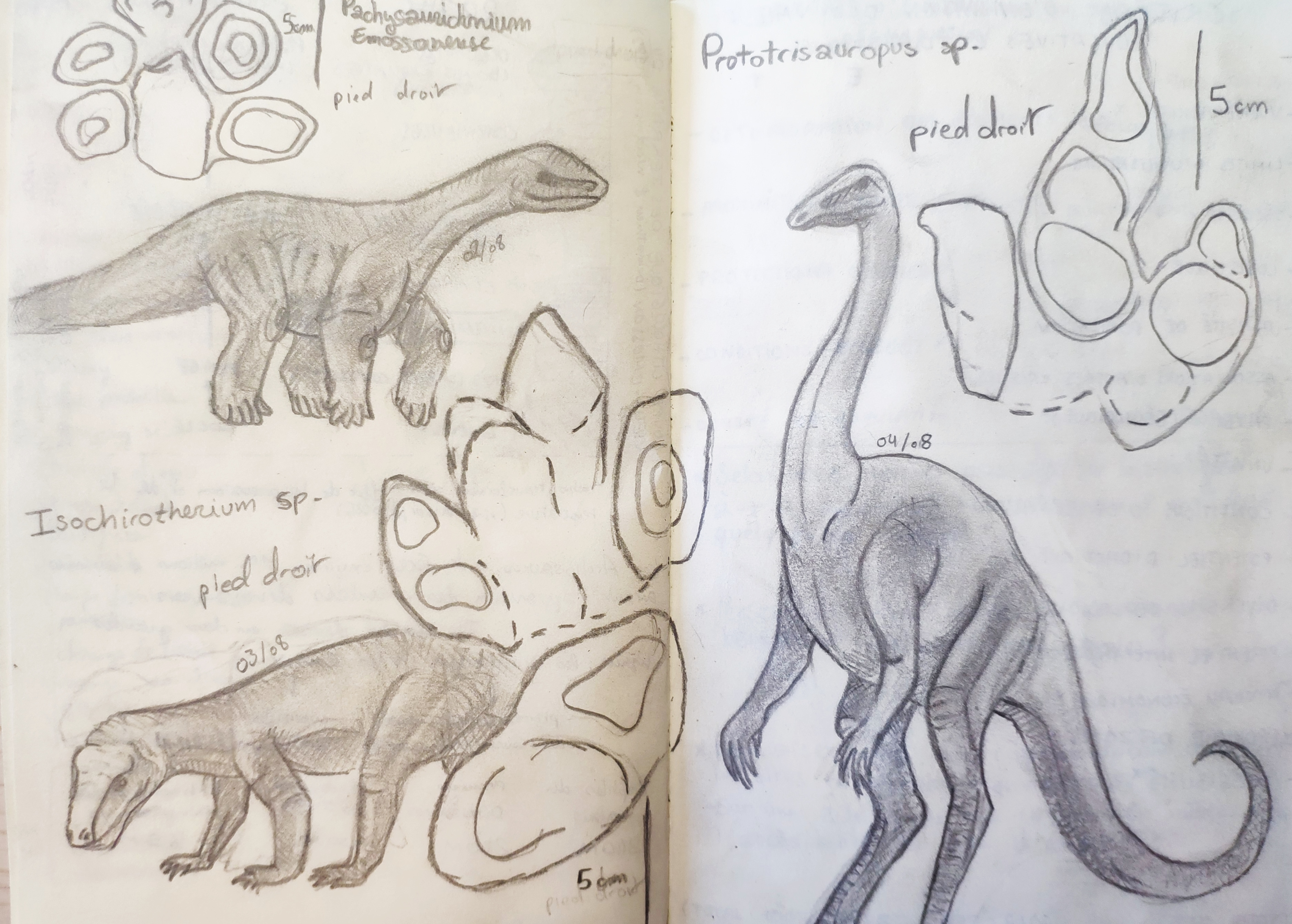
In this scientific stay, I discovered and observed archosaur imprints. Archosaurs are reptilians extinct since long ago. I offer you to join me at that conference to learn more about my research and this specific form of tourism which is the scientific tourism!
Mrs. PERRON STRADELLA Louise, Paléozoic, France, www.osi-paleozoic.org
Hotel activities and Sustainable Development ORAL PRESENTATION
Texts and studies abound to deal with the place that the hotel industry holds in tourism and the economy, among other things to analyze the trades and the means to be implemented in order to ensure the best possible training of the staff, to evaluate the performance hotel establishments or to deal with distribution, marketing, management, taxation, labor relations and ecology. On the other hand, the writings are very discreet on the link between the hotel industry and Sustainable Development, especially in its spatial dimension. The hotel industry generates direct and indirect spin-offs which can contribute a great deal, not without paradoxes, however, to the dynamism of cities, to their organization and to the development of their respective spaces. A quick overview of a few examples from Cameroon will allow us to see that tourism development structured around the hotel industry certainly benefits the economy of destinations and urban development in Cameroon, but imperfectly.
Mrs Pascale Claudia YACPOU BELINGA, Ladies News, Cameroun
Back to the wild ORAL PRESENTATION
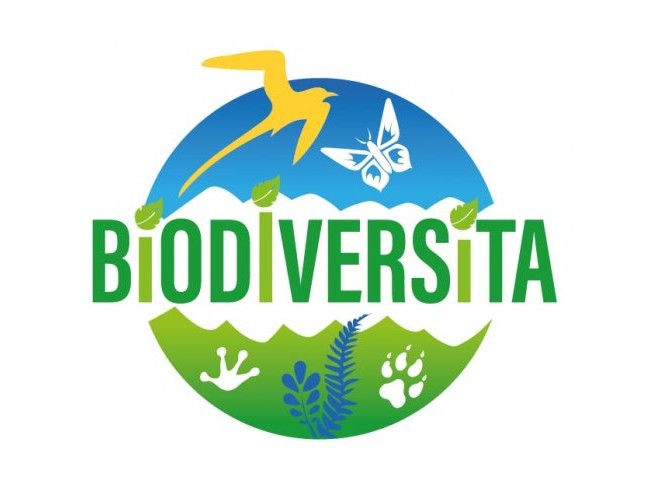
The wolf has been reintroduced in Yellowstone NP (USA) in 1995. Through this field trip, based on scientific journalism, we studied the impact of the wolf on the ecosystem and its importance.
Mrs GRIFFON Eole, Mrs LACROIX Océane, Mr LE COZ Titouan, and Mrs HOANG Aline, BIODIVERSITA, USA
Protected areas in the face of demographic growth and development in Senegal. ORAL PRESENTATION
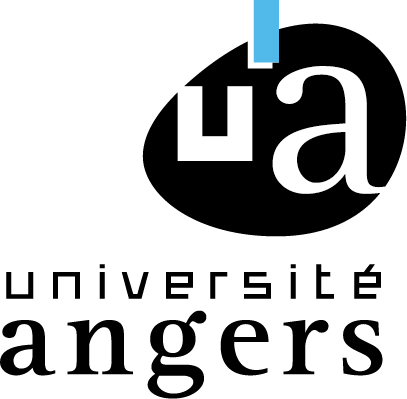
Senegal is one of the countries benefiting from a wide diversity of tourist potential (parks, nature reserves, historical monuments, cultural sites, etc.), which makes it special in the face of competition from other West African countries. Like many other destinations, Senegal is committed to the policy of protecting and enhancing natural resources through a more responsible form of tourism: ecotourism. Indeed, this type of tourism makes it possible to guarantee the safeguarding and perpetuation of biological areas, while enhancing them through environmentally friendly tourist activities that create jobs and generate income for the host communities.
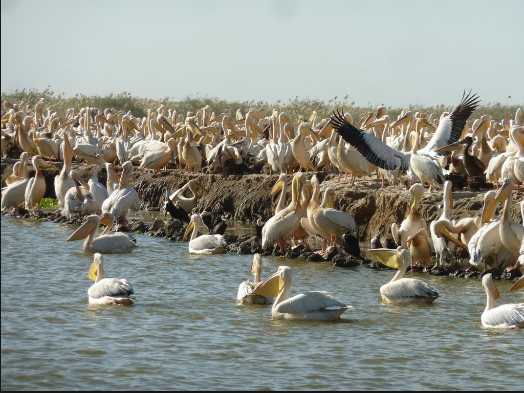
The contribution of Protected Areas is essential to the conservation of ecosystems, the promotion of tourism and the socio-economic development of the populations around them. Ecotourism, which stems from sustainable tourism, is a means of enhancing the value of natural resources and at the same time generating viable and sustainable local development. Today, faced with a growing population, these natural areas are not only an ecological challenge, but are also considered as assets likely to contribute to the development of the populations living within, near and beyond the protected area.
Mrs BAYO Khadidiatou Alice Elisabeth, Université d’Angers, France, https://www.univ-angers.fr/fr/index.html
the sentinels of the sea ORAL PRESENTATION
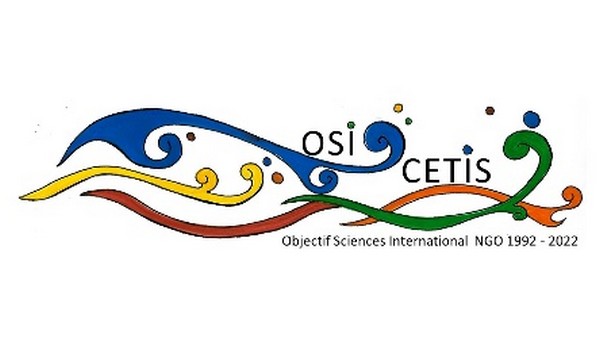
We know little about underwater heritage, however it’s a huge source of knowledge about the past. We contributed to an underwater archeology project located at the border between France and Spain.
Mrs BERTUS Amélie and Mrs JONCKHEERE Marie, ONG Objectif Sciences International - OSI-CETIS, France, https://www.vacances-scientifiques.com/spip.php?page=advanced-research&rids=%5B576%5D
What kind of participatory research in astronomy can we do with young people ? Pedagogy and results in an hollyday camp. ORAL PRESENTATION

What form can participatory research in astronomy take with teenagers?
Participatory research is on the rise, especially in the huge field of astronomy. For the past three years, we have been setting up a protocol to take young people aged 10 to 17 to study exoplanets by themselves. This presentation will be an opportunity to resituate our choices in the context of current participatory research, to explain our pedagogical methods and our protocol.
Mr ROUMAZEILLES Maxime, ONG Objectif Sciences International - OSI-UNIVERS, France, https://www.vacances-scientifiques.com/spip.php?page=advanced-research&rids=%5B581%5D
Participatory research project in Iceland ORAL PRESENTATION

OSI Explor’Earth is a science education and participatory research programme aimed at raising awareness and understanding of the environment in which we live, and to better understand the issues related to human-nature interactions. The Iceland Glaciology Project is a citizen research project in which data on glaciers is collected and then used by Icelandic scientists.
Mr Hugo JOMIER, OSI-EXPLOR’EARTH, France, https://www.vacances-scientifiques.com/spip.php?page=advanced-research&rids=%5B579%5D
Towards restoration of the Przewalski horse and its ecosystem in Western Mongolia ORAL PRESENTATION
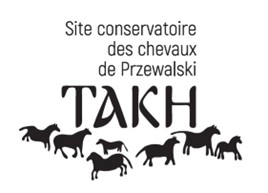
Created in 1990, the TAKH association works for the reintroduction of Przewalski’s horse on its ancestral lands in the steppes of Central Asia, for the preservation of its ecosystem and its biodiversity. It has a 400 hectare site on the Causse Méjean with ecological conditions similar to those of Mongolia, which in 1993 enabled the first horses from zoos to "relearn the wild". After several generations, two families of "Causse" horses were reintroduced to Seer in Mongolia in 2004 and 2005.
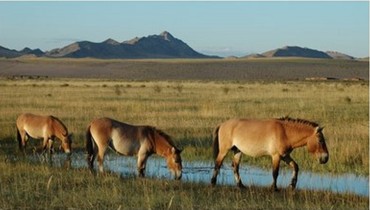
The site is divided into two enclosures (Le Villaret and Nivoliers); the alternating presence of these large herbivores in each enclosure allows for a renewal of the grazing areas. These free horses are now part of the landscape of the "causse nu" and together form an object of study and attraction. This Przewalski’s horse preservation site now serves as a genetic reservoir and reference population for health monitoring and long-term behavioural observations.
In addition to its scientific mission of biodiversity conservation, TAKH integrates mediation and the hosting of projects in residence in order to share its experience and its space, to encourage encounters and multidisciplinary approaches and expertise around the question: what Przewalski’s horses teach us about our relationship with the animal and its (our) ecosystem.
Mrs Héléna NITZE, Chargée de Développement, Pôle Ecotourisme Scientifique, TAKH - Centre des chevaux de Przewalski, France, www.reversethered.org/stories/przewalski-horse
Scientific trips to active volcanoes and introduction to volcanology ORAL PRESENTATION

For 40 years, we have been organising discovery and observation trips to active volcanoes around the world. Over the years, we have expanded our offer to include some fifty different trips of varying degrees of difficulty, which allow you to approach the eruptive activity in good conditions of effort and safety.
Some of our loyal customers have participated in more than 30 trips or expeditions with us. Some of them are scientists related to earth sciences and take advantage of our experience and logistics to access the volcanic areas. Several young people accompanied by their parents, fascinated by these natural phenomena, have decided to make this their profession after studying volcanology in French universities. For the past 20 years, we have also been running earth science courses for European schools on active Italian volcanoes. At present, more than 250 courses have been carried out for a total of about 7000 European students accompanied by their teachers and supervised by us.
We strongly believe that this kind of science tourism applied to participatory science will be in the near future a smart way to travel that can be applied to a multitude of other scientific activities.
Mr. Tanguy de Saint-Cyr, Aventure et Volcans, France, www.aventurevolcans.com
Terra Scientifica, the international event for meaningful travel ORAL PRESENTATION

Terra Scientifica is an annual exhibition organized at the Cité des Sciences et de l’Industrie in Paris in March, by partners Objectif Sciences International (NGO) and Science&Vie (magazine).
This event aims to bring together all the actors involved in the "Scientific Trips" in order to promote the sharing of winning practices and generate collaborations in the development of projects that meet the objectives of responsible and sustainable tourism.
TS is also a mainstream event allowing everyone to discover a new kind of tourism in which they get involved. For the sake of a better world, with sustainable tourism practices, respectful for the nature and people.
Appearing as a real mediator and project facilitator, this fair will be complemented by training in participatory science and an annual committee which will give birth to the week of participatory science.
Mrs Mélanie JIMENEZ, Terra Scientifica, France, www.terra-scientifica.com
A scientific and sporting expedition to Southeast Asia to study and raise awareness about water pollution ORAL PRESENTATION

Students from the School of Agricultural Engineering are going on a 5-month cycling expedition to share authentic and constructive exchanges on the problems of water pollution.
They will travel light through five countries: Thailand, Cambodia, Laos, Vietnam and Bali to discover, learn and compare the reality of the places on the subject of water.
This expedition will be the subject of a report to raise awareness in their network.
To reinforce their awareness raising actions, they will be accompanied by the KOKEO coordination team on the spot to collect field reports from different water actors and experts which will be sent to the KOKEO Advocacy Committee for further awareness raising, especially with national and international bodies.
It is a replicable model for responsible youth in the world!
Mrs Vaddana KEO, Fondatrice-Présidente, and Mr. Bruno de Monteynard Responsable de la Commission de plaidoyer en charge des relations avec ONU, KOKEO, Cambodge, www.kokeo.org
ACD: THE CHALLENGES OF SUSTAINABLE DEVELOPMENT IN RURAL AREAS OF THECA ORAL PRESENTATION
With its 622 km 2, the Central African Republic is as large as Ukraine or as large as France and Belgium combined. It is a sparsely populated country (4.7 million inhabitants, according to the last census) and poor, with a GDP per capita of 446 dollars. It is a least developed country (LDC), with a development index that places it 180th out of 186 countries listed. With an economy characterised by the predominance of the primary sector (around 50% of GDP), made up of subsistence agriculture which employs 66% of the population, livestock, forestry and extractive industries (mainly diamonds). Processing industries remain embryonic, while the service sector is particularly dynamic, notably due to the breakthrough of mobile telephony. However, the political and security crisis in CAR has amplified the country’s usual economic difficulties. Forecasts for 2023 are disastrous, with the threat of a recession varying between 14 and 20%. Among the many challenges facing the country, the weakness of road infrastructure in rural areas (for such a large country) and the alarming rate of unemployment are essential brakes on development. To face these challenges, the CDA proposes the self-construction of rural roads, wooden bridges and the creation of artisanal activities in the country.
Mr GABIRAULT Eric, ACD (ACTIONS CENTRAFRIQUE DEVELOPPEMENT), Central African Republic, site
For the registration form, see below.
To Propose an Abstract for Presentation
Registration form to the event.
- You contribute to the fees only if necessary (e.g. participation to a Networking Diner)
- To receive all information, please fill in this form as soon as possible
- Filling in this form does not give any obligation to participate. You will receive all the information by email as soon as the form will be validated. You can also consult the same information directly on your screen.
- For questions about access administration : please do not wait to ask for information via this form.
After validating this form, consult your spam folder !
if you use a same e-mail for 2 or more people, nobody of you will receive access pass, as each e-mail is dedicated to one access pass
Confirm your email address please : Please pay special attention to ensuring your email address is correct. Otherwise you will not be able to confirm your registration later.
We may need to send you texts when deemed necessary. Please indicate the country code as well (only figures and spaces, no comma, dash, brackets or other special characters)
To send the title and the abstract of your presentation, please follow the instruction that will be shown on the results page after you will validate this subscription form.
If yes, you will be accompagnied by or one-on-one meeting team to be involved in the Participatory Research actions of OSI
Please leave this field empty:
Pour vérifier que vous n'êtes pas un robot : Merci d'écrire ici le total de 3+2
Please click on the button "SUBMIT" only ONE TIME and allow the server some time in order to register your answers.
Please keep in your documents the information that will be shown on the results page after clicking the button "SUBMIT".
Be aware that if the results page doesn’t appear in 10 seconds, one of the question of the form is requiring a correction or an answer.
Photos / Videos

Informations légales
This site is also available in :.
- 40/246 May 11: International Migratory Bird Day
- 3/246 May 16: International Day of Living Together in Peace.
- 26/246 March 1st: "Zero discrimination" Day
- 2/246 February 21: International Mother Language Day
- 142/246 March 21: International Day of Forests
- 142/246 May 22: International Day for Biological Diversity
- 40/246 April 26 : World Intellectual Property Day
- 141/246 June 5: International Day for the Fight against Illegal, Unreported and Unregulated Fishing
- 140/246 December 11: International Mountain Day
- 54/246 February 11: International Day of Women and Girls in Science.
- 143/246 September 16: International Day for the Preservation of the Ozone Layer
- 141/246 June 17: World Day to Combat Desertification and Drought
- 28/246 February 2: World Wetlands Day
- 26/246 November 20: Universal Children’s Day
- 145/246 April 22: International Mother Earth Day
- 141/246 September 26: World Maritime Day
- 115/246 September 27: World Tourism Day
- 155/246 September 29: International Day of Awareness of Food Loss and Waste
- 143/246 December 5: World Soil Day
- 141/246 June 8: World Oceans Day
- 41/246 August 9: International Day of the World’s Indigenous Peoples
- 26/246 January 24th : International Education Day
- 159/246 June 5: World Environment Day
- 246/246 Geneva
- 246/246 Simultaneous translation English/French
- 1/246 Açores routard
- 1/246 Baleines Açores
- 2/246 Baleines Tadoussac
- 2/246 Colonie de vacances / Valais / Suisse
- 1/246 Mammifères Marins
- 1/246 Nager avec les dauphins / Nager avec les baleines
- 1/246 Offre Emploi Accrobranche
- 1/246 Offre Emploi Canoe Kayak
- 1/246 Offre Emploi Drones
- 1/246 Offre Emploi Equitation
- 1/246 Offre Emploi Montagne
- 1/246 Recherche Scientifique
- 1/246 Solidaire / Solidarité
- 1/246 Vacances Açores Famille
- 1/246 Vacances avec les baleines
- 1/246 Vacances carnaval
- 1/246 Vacances de ski
- 1/246 Vacances Découverte
- 1/246 Vacances février
- 1/246 Vacances Insolites
- 1/246 Vacances originales
- 1/246 Vacances Originales
- 1/246 Vacances scolaires 2016
- 1/246 Vacances utiles
- 1/246 Vacances Utiles
- 1/246 Volontaire / Volontariat
- 182/246 International Annual Conference
- 156/246 Rights of Nature
- 156/246 Rights of Mother Earth
- 190/246 High Level Panel
- 44/246 Bar Camp
- 55/246 FabLabs
- 44/246 Hackathon
- 192/246 Participatory Research
- 65/246 Citizen Science
- 188/246 World Café Workshop
- 153/246 EcoTourism
- 154/246 Sustainable Tourism
- 126/246 Solidary Tourism
- 163/246 Nature Travels
- 56/246 CrowdFunding
- 84/246 Sustainable Finance
- 85/246 Finance and CrowdFunding
- 55/246 Ethical Finance
- 65/246 ThinkCamp
- 184/246 Blended Finance Party
- 165/246 Respectful Education
- 135/246 Differentiated Pedagogy
- 136/246 Inclusive Pedagogy
- 16/246 Internal meeting of OSI’s members (Public)
- 184/246 Appropriated Technologies
- 154/246 Advanced Intermediate Technologies
- 15/246 Networking
- General Assembly
General Assembly Adopts 4 Resolutions Ranging from Durable Peace in Africa to Sustainable Tourism, Organ also Concludes Debate on Temporary Occupation of Ukraine
Many delegates express concern over moscow’s continued human rights violations in ukraine, as organ also concludes debate on temporarily occupied territories.
The General Assembly adopted four resolutions today on issues ranging from sustainable tourism to durable peace in Africa to the World Social Summit in 2025, as it also concluded its general debate on the situation in the temporarily occupied territories of Ukraine.
Acting without a vote, the Assembly adopted the resolution “‘World Social Summit’ under the title ‘Second World Summit for Social Development’” (document A/78/L.39 ).
By the text, the Assembly decided to convene the “World Social Summit” to address the gaps and recommit to the Copenhagen Declaration on Social Development and the Programme of Action and give momentum towards implementing the 2030 Agenda for Sustainable Development. It requested the President of the General Assembly to appoint two co-facilitators for the intergovernmental preparatory process leading up to the Summit. It also requested the Secretary-General to provide adequate support within existing resources to the preparatory process.
Introducing “L.39”, the representative of Portugal, speaking also on behalf of Chile, the co-facilitator, and the core group members, highlighted the key objectives of the draft: “The 2025 Summit is our opportunity to revitalize our social agenda by strengthening the social development pillars, namely poverty, eradication, social inclusion, social protection and decent work.”
Speaking in explanation of position, the representative of Hungary, speaking on behalf of the European Union, highlighted the bloc’s priorities, such as decent work, full and productive employment, social dialogue, adherence to international labour standards and social protection. Underscoring the role of the International Labour Organization (ILO) in promoting social justice in the multilateral system, he noted the importance of cooperation in the preparations for the World Social Summit. Similarly, the global coalition for social justice should play a crucial role in contributing to the Summit’s objectives.
The representative of the Russian Federation voiced disappointment over the absence of mention of the United Nations Commission for Social Development — a specialized subsidiary body — in the document, urging all parties to harness the Commission’s potential in the preparatory stages of the Summit.
The representative of India pointed to the slow progress made in implementing the Copenhagen Declaration and its Programme of Action since the first Summit, held in 1995. Highlighting her county’s vision of developing together and leaving no one behind, she noted that 135 million Indians have emerged from multidimensional poverty in the past five years. The country is also on track to achieve Sustainable Development Goal (SDG) Target 1.2 before the 2030 deadline.
The representative of Pakistan, noting that the intergovernmental preparatory process leading up to the Summit will be limited to discussing the Summit’s modalities and negotiating its political declaration, stressed that the talks on the Summit’s outcomes should not renegotiate its scope.
The representative of Egypt emphasized that the Summit’s outcome should focus solely on social development, aligning with the Copenhagen Declaration and the 2030 Agenda. The Commission for Social Development — as a functional Commission of the Economic and Social Council — remains the main UN body tasked with follow-up and review of the World Summit for Social Development and the twenty-fourth special session of the General Assembly. She also voiced regret that the negotiation environment for the resolution deviated from cooperation, with some delegations imposing their views on the Summit’s content.
The representative of Belarus, noting that poverty eradication in all its forms and manifestations is the most important global challenge, welcomed the initiative to convene in 2025 the Second World Summit for Social Development, which will give an impetus to developing international cooperation for achieving social protection and equality of all people. “This is precisely what the political declaration of the Summit needs to reflect,” she added.
In other notable action, the Assembly adopted by consensus the resolution titled “Promotion of durable peace through sustainable development in Africa” (document A/78/L.37 ).
By its terms, the Assembly urged continued support for measures to address poverty eradication and hunger, decent job creation and sustainable development in Africa, including domestic resource mobilization, debt relief, improved market access and intra-African trade. It expressed grave concern about the growing threat posed by terrorism and violent extremism to the peace, security and socioeconomic development of Africa. As well, the Assembly called on the Office of Counter-Terrorism and the United Nations Office on Drugs and Crime (UNODC) to intensify cooperation assistance for African Member States and the African Union.
Introducing the draft on behalf of the Group of 77 and China, the representative of Uganda noted that it builds on 2023’s resolution and aims to address the root causes of conflict in Africa. It also promotes durable peace, aligning with the 2030 Agenda and the African Union’s Agenda 2063.
Speaking in explanation of position, the representative of Botswana, speaking on behalf of the African Group, cited the adoption of resolutions “L.37” and “L.38” as “our collective commitment to the sustainable development and peace on our continent”. The former is a call to action for enhanced cooperation and support based on African countries’ national priorities, while the latter is a testament to the shared vision for Africa’s prosperity, which emphasizes the importance of international support in achieving the objectives of the New Partnership for Africa’s Development. To address the root causes of conflict and foster durable peace, the global community must support the realization of the United Nations Framework Convention on Tax, she added.
The representative of the Russian Federation underscored his country’s commitment to deepen political, economic and humanitarian cooperation with African countries. Accordingly, he highlighted the second Russia-Africa summit held in July 2023, which resulted in a 20 per cent increase in trade with Africa.
The representative of Hungary disassociated herself from preamble paragraph 24 and operational paragraph 17, recalling that her country neither adopted the Global Compact for Migration nor believes that migration has a positive impact on inclusive growth and development.
The representative of the United Kingdom, noting the critical role of peacekeeping in reducing conflict and increasing stability in Africa, observed that the resolution does not fully reflect the exact language in Security Council resolution 2719 (2023), which provides a model for future UN support to African Union peace operations.
Acting without a vote, the Assembly then adopted the resolution “International Year of Sustainable and Resilient Tourism, 2027” (document A/78/L.42 ), by which it proclaimed 2027 the International Year of Sustainable and Resilient Tourism.
Introducing the draft, the representative of Uzbekistan said that, today, global tourism accounts for 1 in 11 jobs, generating $1.5 trillion in exports. Before the COVID-19 pandemic, tourism accounted for 4.2 per cent of global gross domestic product (GDP) — the same share as agriculture. Despite being the hardest hit by the pandemic, tourism is recovering fast. According to the World Tourism Organization (UNWTO), international tourism ended 2023 at 88 per cent of pre-pandemic levels, with an estimated 1.3 billion international arrivals. Citing this as “a very encouraging signal to the world community”, he stressed the need to keep this positive dynamic while ensuring the sector’s full recovery.
The Assembly then adopted by consensus the draft resolution “New Partnership for Africa’s Development: progress in implementation and international support” (document A/78/L.38 ).
By its terms, the Assembly emphasized the need for the United Nations development system to further cooperate with the African Union and the regional economic communities, to follow up on African development priorities. It also called on the international community to continue its support for the implementation of the Comprehensive Africa Agriculture Development Programme and expressed deep concern about the recurring food insecurity. The Assembly further called on African countries to create a domestic environment conducive to encouraging entrepreneurship, supporting micro, small and medium-sized enterprises, especially those owned by women and youth.
Introducing the draft on behalf of the Group of 77 and China, the representative of Uganda highlighted the progress made by African countries and the support received by development partners. The draft places the spotlight on areas that need support, he said, underscoring the need to fulfil all commitments to advance political action for Africa’s sustainable development. He also noted the immense flexibility shown in the formulation of consensual language throughout the text.
Speaking in explanation of position, the representative of Belgium, on behalf of the European Union, highlighted the bloc’s long-standing partnership with the African Union on a wide range of issues, particularly security and development. “Europe and Africa need each other to build a solid and lasting response to global challenges” — from climate change, financing, energy and food security to strengthening health systems. In 2024, the resolution focuses on combatting climate change, he observed.
The representative of the United States said that his delegation joined consensus on operative paragraph 1, with the expressed understanding that the draft does not change the current state of customary international law regarding access to safe drinking water, sanitation and hygiene. He further disassociated from operative paragraph 21, expressing regret that the characterization of the $100 billion goal is inconsistent with the agreed formulation of the goal in the Paris Agreement process.
The Assembly then continued its general debate on the situation in the temporarily occupied territories of Ukraine. According to the Office of the High Commissioner for Human Rights (UNHCR), at least 10,000 civilians have been killed, and more than 18,500 injured — not counting the deaths among soldiers on both sides — during the Russian Federation’s unprovoked war of aggression, which has entered its third year.
Urging for a cessation of hostilities and outlining current mediation efforts to that end, numerous speakers further expressed deep concern about the continued violation of human rights in the temporarily occupied territories, including indiscriminate and intentional attacks against civilian populations and objects, widespread and systematic summary executions, torture, inhumane detention conditions, sexual and gender-based violence and forced transfer and deportation, including of children. Many also condemned the attempted illegal annexation by the Russian Federation of Ukraine’s Donetsk, Luhansk, Kherson and Zaporizhzhia regions.
Among them was the representative of Australia who underscored the need to hold the Russian Federation to account for its illegal attempted annexation of Ukraine’s territory; its serious violations of international human rights law and international humanitarian law; and its deportation of Ukrainian children from regions under temporary Russian control, for which the International Criminal Court has issued arrest warrants against President Vladimir V. Putin and his Commissioner for Children’s Rights, Maria Lvova-Belova. “Ukraine’s fate matters to us all,” he said, adding: “Any one of us could be next.”
“This war has brought back haunting memories of Europe’s history, with acts of atrocities, including mass graves and torture of civilians,” said the representative of the European Union, speaking in his capacity as observer. He urged for an independent international investigation into the circumstances of the Russian opposition leader Alexei Navalny’s sudden death, for which the ultimate responsibility lies with Mr. Putin and Moscow’s authorities. “Today’s discussion is not just about Ukraine, but about the fate of each and every country in this Hall,” he asserted.
The representative of the Republic of Moldova, aligning himself with the European Union, said that his country continues to host 120,000 Ukrainian refugees. A temporary protection mechanism was launched almost a year ago, providing legal status and access to essential services. Pointing out Chisinau’s collaboration with Ukraine, Romania and the European Union to facilitate the transit of goods, he emphasized the importance of “boosting support” to Ukraine as it was at the early stages of the war. Turning to his country’s security concerns, he spotlighted the discovery of drones and missile debris on its territory.
Echoing such concerns, the representative of Estonia said that, as of today, the Russian Federation has illegally occupied and annexed about 17 per cent of Ukraine’s territory. Condemning Moscow’s goals “to erase sovereign Ukraine from the map” and Mr. Putin’s “deeply genocidal thinking”, he said: “in (his) paranoid imagination, Ukraine as a nation does not exist”. Any opposition in the occupied territories, or increasingly also in the Russian Federation itself, is met with repressions, deportation, imprisonment or extrajudicial killings. The latest example is “a murder by Putin and his cronies” of the much-feared opposition leader Alexei Navalny, after his poisoning and prolonged torture.
On the “profound and far-reaching consequences” of the war in Ukraine, the representative of Guyana highlighted the “staggering” estimated cost of post-war recovery and reconstruction, which stands at $486 billion. “In war, there are no winners,” she stated, advocating for “dialogue over destruction and cooperation over conflict”.
“The war in Ukraine continues to send reverberations beyond the battleground,” said Türkiye’s delegate, stressing that the human cost and the physical destruction are “mounting by the day”. In this war of attrition, a state of relative stalemate prevails on the ground, with no end in sight and little prospect for peace, he said, stating: “The endgame for this war should not be a binary between a frozen conflict and a forever war.” Instead, he emphasized, “it is high time that we focus our efforts on crafting the contours of a realistic, sustainable, and above all, a viable peace”.
In the same vein, India’s delegate underscored that the path to peace requires all channels of diplomacy to be open, and steps that endanger the possibility of dialogue and negotiation must be avoided.
The representative of Qatar, speaking on behalf of the Cooperation Council for the Arab States of the Gulf, spotlighted current mediation efforts, including Saudi Arabia’s success in ensuring an exchange of prisoners between the Russian Federation and Ukraine, as well as Doha’s engagement in the reunification of Ukrainian children with their families in Ukraine. Serious negotiations between the warring parties to extend an agreement allowing for the uninterrupted export of grains from Black Sea ports will ensure stability in food prices and enhance food security, especially in developing countries.
Voicing regret over “the lack of dialogue” between the Russian Federation and Ukraine, Mexico’s delegate urged for a cessation of hostilities through direct negotiations. On current mediation efforts, she spotlighted Qatar’s initiative to reunite Ukrainian children with their families. She also underscored the importance of accountability through the implementation of relevant decisions of the International Criminal Court. As well, she reiterated her country’s “unwavering condemnation” of any threat of the use of nuclear weapons, as well as of the use of explosive weapons in populated areas.
The representative of the Republic of Korea, highlighting Moscow’s unwillingness to halt its invasion, said that 1,500 Russian attacks have been conducted during the first two weeks of February alone, targeting 570 Ukrainian towns and villages. Just a few days ago, the eastern Ukrainian city of Avdiivka was also captured by Russian troops, causing many casualties. Urging Moscow to immediately stop its military cooperation with Pyongyang, he stressed that such arms deals threaten not only the authority of Security Council resolutions but also the global non-proliferation regime.
The representative of Israel said that both Ukraine and his own country “are fighting a battle for survival”. Warning about Moscow’s deepening ties with global forces of destabilization — including Hamas and Iran — he criticized the international community for standing idle. “If the United Nations cannot do anything to prevent aggression, then there is no longer any justification for this organization to exist,” he emphasized.
Adding to that, Kenya’s delegate said that wars in Ukraine and Gaza undermine the UN’s credibility: “From them comes a litany of suffering that mocks the promise of the United Nations to ‘never again’.” However, criticizing the United Nations for its inaction is not enough, he asserted, noting that 2024 represents a crossroads: the UN will either fade into irrelevance, or its influence will be restored if Member States seize this moment to bolster the institution. “The path to true, enduring greatness lies not in the fleeting gains of dominance, but in creating a world where all nations, including your own, prosper in lasting security,” he said.
Facebook Twitter Email Print LinkedIn
- Minister of Foreign Affairs
- Deputy Minister Giorgos Kotsiras
- Deputy Minister Alexandra Papadopoulou
- Deputy Minister Kostas Fragogiannis
- The Secretary General
- The Secretary General for International Economic Affairs
- The Secretary General for Greeks Abroad and Public Diplomacy
- Mission and Competences
- Crisis Management Unit
- Diplomatic Academy
- The Directorate General of International Development Cooperation-Hellenic Aid
- Diplomatic and Historical Archives
- Special Legal Department – Responsibilities – Structure
- Centre for Foreign Policy Planning
- Office for Promotion of Greek Nominations in International and Supranational Organizations
- Strategic Plan
- Supervised Organisations
- International Conventions
- Sectoral Development Program
- Greece’s Bilateral Relations
- Issues of Greek - Turkish Relations
- The Cyprus Issue
- The Issue of the Name of North Macedonia
- Energy Diplomacy
- Cultural Diplomacy
- Sports Diplomacy - Olympic Games
- Religious Diplomacy
- International Development Cooperation
- Public Diplomacy
- Western Balkans
- Mediterranean
- Middle East
- Greece in the EU
- Greece in International Organizations
- Global Issues
- Parliamentary Speeches
- National Council on Foreign Policy
- Announcements - Statements - Speeches
- Meetings - Events
- Press Briefings
- Philia Forum, Athens, 11.2.2021
- Philia Forum, Athens, 11.2.2021 [mix]
- Philia Forum, Athens, 11.2.2021 [ar]
- News Archive
- KEP and Services for Greeks Abroad
- Register of Certified Translators
- Administrative Affairs
- Judicial Affairs
- Merchant Marine Affairs
- Elections for Greek citizens abroad
- Consular protection by EU Member-States
- Search the Diplomatic and Historical Archives
- Digital Transformation of Consular Service Procedures
- National Visas
- Schengen Visas
- Visas for Foreigners travelling to Greece
- Visas for Greeks travelling abroad
- Photography and Filming in Greece
- Public Consultations
- Financing, Trade and Investment Opportunities
- Career Opportunities in the Ministry
- Career opportunities in International Organisations
- Directory at the Ministry
- Greek Missions Abroad
- Foreign Missions in Greece

The 9th International "Our Ocean Conference" Greece 2024 (Athens, Stavros Niarchos Foundation Cultural Center, 16-17.04.2024)

Greece, signifying its commitment to contribute to global challenges actively and to support the legacy of commitments for ocean protection, is hosting the 9th "Our Ocean Conference" (OOC-9), which will be held on April 16-17, 2024, in Athens at the Stavros Niarchos Foundation Cultural Center. An integral part of this international conference is the "Our Ocean Youth Leadership Summit," which will be held on April 15, 2024, aiming to awaken the new generation to ocean sustainability. The OOC Conference was launched by the U.S. State Department and former Secretary of State John Kerry in 2014. Since then, it has evolved into an international event where governments, international organizations, private sector representatives, NGOs, and the academic community collaborate to protect the oceans. The Conference’s ultimate goal is to elicit tangible commitments from participants for ocean conservation, responsible management of marine resources, and sustainable economic growth. It is noteworthy that by 2023, the Conference had secured over 2,161 commitments, valued at approximately 130 billion U.S. dollars for ocean protection. Greece, a country with an extensive coastline of over 20,000 kilometers and more than 29,000 islands and islets, with a long maritime tradition, acknowledging the urgency for marine environmental protection, is leading initiatives in this direction. Notable examples include the establishment of Marine Protected Areas and the ambitious project of decarbonizing the islands. By hosting OOC-9, Greece reaffirms its shift towards a sustainable "blue" economy and seeks to highlight international challenges for sustainable fishery, marine ecosystem protection, the combat against marine pollution -particularly by plastics-, as well as the interconnection between the climate and oceans. Oceans are the foundation of life on our planet and the natural habitat of a rich marine biodiversity, essential for food security and sustainable development. Their role is crucial in climate regulation, functioning as "carbon traps" and as the primary source of the oxygen we breathe. Simultaneously, they encompass some of the most vulnerable and burdened ecosystems. It is true that ocean health contributes to the overall health of our planet, and it is our duty to maintain the ecological balance of marine ecosystems, ensuring their health and resilience. The United Nations Climate Change Conference is increasingly acknowledging the dynamic interaction between climate and oceans, as a stable climate maintains the health of marine ecosystems and the undisturbed functioning of the oceans limits the impacts of climate change. Oceans, apart from their ecological value, have a significant economic dimension, contributing substantially to the global economy. From tourism to fishing and shipping, economies at all levels rely heavily on the ecological balance and vitality of marine ecosystems. Emerging industries, such as new forms of offshore Renewable Energy Sources (e.g. offshore wind farms), marine biotechnology, and the gradual transition and integration of shipping into the circular economy, strongly indicate that our common future is based on a blue, sustainable, and inclusive economy grounded in the oceans. The "Our Ocean Conference" aspires to promote cooperation between governments and stakeholders from around the world, aiming to mobilize, showcase prospects and innovative ideas, and undertake commitments for ocean sustainability. Emphasis will be placed on the shared responsibility to ensure that our oceans continue to meet the needs of today and future generations. Simultaneously, the participation of young people in the "Our Ocean Youth Leadership Summit" (April 15) seeks to harness innovative ideas to contribute to substantial progress for ocean protection and sustainability. This year's youth session will delve into four aspects: 1. Education, 2. Career Orientation, 3. Lifelong Learning, and 4. Innovation, accompanied by a technology innovation competition among participants. The same day (April 15) will also mark the launch of the 1st Our Ocean Film Festival. It should be noted that each OOC Conference focuses on six areas of action: § Marine Protected Areas (MPAs): Their establishment ensures effective management through targeted protective measures that take into account the pressure on marine ecosystems from activities such as tourism, shipping, and fishing. § Sustainable blue economy: It serves as a key tool for the sustainable use of marine resources, contributing to the sustainable development of ocean-based activities, like sustainable tourism, green shipping, and sustainable offshore wind energy. § Addressing climate change: Enhancing the interaction between climate and oceans, as well as taking holistic actions with the ocean's role as a climate regulator in mind, and the need to mitigate the impacts of climate change on the oceans. § Maritime security: This section highlights aspects such as combating piracy, illicit trafficking of goods and people, illegal fishing, and pollution. § Sustainable fishing: Promoting efficient fishing practices, monitoring bans and restrictions, and other holistic solutions to reduce overfishing and protect fish stocks. § Marine pollution, caused by the discharge of nutrients, chemicals, and waste from land-based or maritime activities: The challenge is to reduce it and protect the marine environment effectively. Additionally, Greece will place particular emphasis on four cross-cutting sectors that run through the six thematic areas mentioned above at the OOC Conference: § Sustainable tourism in coastal areas and islands to achieve the optimal balance between tourism development, marine environment protection, and the prosperity of local communities. Sustainable tourism can also be a key lever for resilience against the challenges of climate change. § Green shipping, within which a broad range of environmentally friendly actions for pollution control, promotion of decarbonization, and transition to sustainable management practices aimed at reducing the impact of shipping on the marine environment will be encouraged. § Reduction of marine pollution from plastics and microplastics. Greece will undertake initiatives in this direction, as this specific form of pollution represents one of the most serious threats to marine ecosystems and human health - through the food chain. § Green transition in the Mediterranean - a sea connecting three continents and serving as a crossroad of cultures and people - addressing the challenge of transitioning to a sustainable future in the Mediterranean and "unlocking" benefits for marine ecosystems. It is worth noting that the 9th OOC Conference will be the first Conference following the adoption of the Agreement on the Conservation and Sustainable Use of Marine Biological Diversity of Areas Beyond National Jurisdiction, under the UN Law of the Sea Convention, known as the BBNJ Treaty, covering more than two-thirds of the oceans. With the 9th OOC Conference, ocean issues remain at the top of the global agenda, while significant synergies are expected with upcoming high-level ocean-related events at the United Nations level. In particular, the OOC-9 Conference aims to contribute to the high-level preparatory phase of the 3rd United Nations Ocean Conference (UNOC), to be held in Costa Rica in June 2024, and to the 3rd UNOC itself, which will take place in Nice, France, in June 2025. Thus, it paves the way for more coordinated action that will strengthen mechanisms and implementation means for the protection and sustainable management of oceans at a global level, actively supporting Sustainable Development Goal 14 (SDG 14). Greece seeks substantial solutions for strengthening policies, governance, technology, and financing, with targeted actions for clean and healthy oceans. Recognizing the importance of extensive mobilization of all stakeholders, the 9th OOC Conference aims to continue its very successful trajectory and to leverage active participation with concrete, voluntary commitments from countries, entities, economic and social partners from around the world. This mobilization is expected to play a decisive role in finding innovative solutions and supporting science and financing for the oceans, which will be key components of the 3rd UNOC. Greece, through global cooperation, aspires to contribute to a future where oceans are resilient and vibrant ecosystems, capable of ensuring prosperity for the present and the future. The global community recognizes the serious and multiple threats and pressures our oceans face, as well as the need for immediate and effective actions. The 9th "Our Ocean Conference" in Greece leads the way in creating the dynamics for the effectiveness of these actions.
Greece in 5 Languages
The Ministry
Foreign policy.
- Foreign Policy Issues
- Regional Policy
- Parliament and Foreign Policy
Current Affairs
- Citizen Services
- Services for Enterprises
- Career Opportunities
- Advanced Search
- Terms of Use
- Social Media Policy
The website was developed using the open source software Elxis CMS by the Web Development Team of Foreign Ministry's ST2 Directorate for Telecommunications and Information Technologies
UN Tourism | Bringing the world closer

share this content
- Share this article on facebook
- Share this article on twitter
- Share this article on linkedin

6th UNWTO Global Conference on Wine Tourism
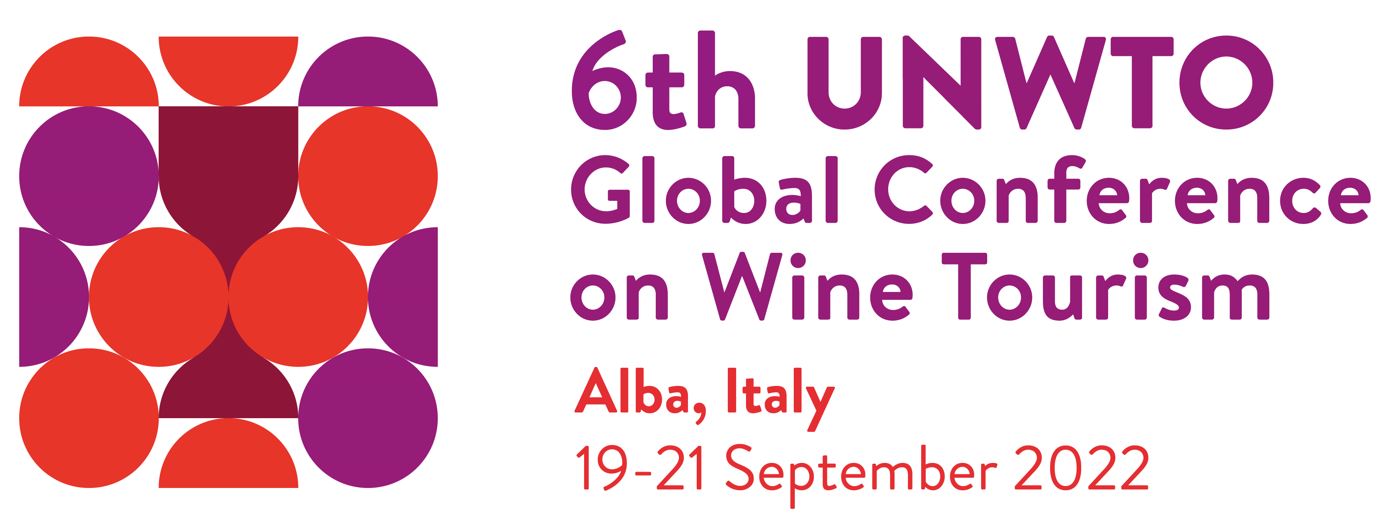
The World Tourism Organization (UNWTO) and the Government of Italy organized the 6th UNWTO Global Conference on Wine Tourism on 19-21 September 2022 in Alba, Italy.
Innovating in experiences, marketing and partnerships creates a wide range of opportunities for all members of the value chain at a critical moment for travelers, companies, authorities and locals when active participation and conscious thinking should enhance the value of wine tourism destinations and their environment.
Working towards this will be the key to the development of the sector and the satisfaction of people who will travel with wine as a motivation.
Building on UNWTO’s work on advancing tourism at the center of plans for recovery, under the theme 'What's next? Wine pairs with Innovation…' , this annual Conference represented a unique opportunity for experts from across the growing field of wine tourism to work together to find concrete solutions to build back better and make tourism an enabler of the way forward towards a more sustainable, inclusive and resilient future for rural communities.
DAY 1 - 20/09
DAY 2 - 21/09
SEE YOU IN LA RIOJA, SPAIN IN 2023!
- Conclusions
- Key Takeaways
- Speakers Profiles
- Wine Tourism in Italy, by Roberta Garibaldi
- Wine Tourism through a new lens, by Jana Kreilein
- Get inspired - Keynote by Julia Zuccardi
- Measuring Wine Tourism
- Workshop: Wine Tourism pairs with Sustainability, by Niklas Ridoff
- Workhop: Wine tourism pairs with Sustainability, by David Mora
- Workshop: Wine tourism pairs with Creativity, by Martin Hawke
- Workshop: Wine tourism pairs with Creativity, by Stefano Tulli
- Workshop: Wine tourism pairs with Communication, by Filippo Polidori
- Workshop: Wine tourism pairs with Communication, by Jana Kreilein
- General Information Note
- Previous editions
Related Content

UN Tourism Session on Opening eyes and building contact...

8th UN Tourism Global Conference on Wine Tourism

Tourism Tech Adventures – Canarias 2024

Search the United Nations
- Stockholm 1972
- Johannesburg 2002
- Stockholm 2022
- UN Conferences
Conferences | Environment and Sustainable Development
The history of sustainable development in the United Nations dates back to the United Nations Conference on the Human Environment , held in Stockholm, Sweden, in 1972. The United Nations Conference on the Human Environment was the UN's first major conference on the issue of the environment. The conference adopted the Stockholm Declaration and Plan of Action which set out principles for the preservation and enhancement of the human environment, with recommendations for international environmental action. The Conference also created the United Nations Environment Programme (UNEP) , the first UN programme focused solely on environmental issues.
Twenty years later, at the historic Earth Summit in Rio de Janeiro, Brazil in 1992, the United Nations sought to help Governments rethink economic development and find ways to stop polluting the planet and depleting it's natural resources.
The two-week "Earth Summit" was the climax of a process that had begun in December 1989, of planning, education and negotiations among all Member States of the United Nations, leading to the adoption of Agenda 21 , an official global consensus on development and environmental cooperation.
Basic to Agenda 21 was the acknowledgement that protecting the environment required collaboration across boundaries. Agenda 21 was meant to reflect an international consensus to support and supplement national strategies and plans for sustainable development. It called for all States to participate in improving, protecting and better managing ecosystems, and taking common responsibility for the future.
The Earth Summit also produced the Rio Declaration , which had 27 principles, on new and equitable partnerships and development through cooperation among States, social sectors and individuals. They reflected human beings’ responsibility for sustainable development; the right of States to use their own resources for their environmental and development policies; and the need for State cooperation in poverty eradication and environmental protection. The idea was that States must act in a spirit of global partnership to conserve, protect and restore the integrity of the Earth’s ecosystem
At the historic Rio conference, 172 Governments (108 represented by heads of State or Government) adopted three major agreements to guide future approaches to development: Agenda 21, the Rio Declaration, and also the Statement of Forest Principles, a set of principles to underpin the sustainable management of forests worldwide. In addition, two legally binding instruments were opened for signature at the Summit: the United Nations Framework Convention on Climate Change and the Convention on Biological Diversity . Moreover, negotiations began on the Convention to Combat Desertification, which was opened for signature in October 1994 and entered into force in December 1996.The Rio conference stood out from other UN conferences by its size and the range of problems studied. The United Nations worked in Rio de Janerio to help governments think about economic development and find ways to end the destruction of irreplaceable natural resources and the pollution of the planet.
In 1997, a Special Session of the General Assembly devoted to the environment, also known as 'Earth Summit + 5' examined the implementation of Agenda 21 and proposed a programme for further implementation
Three years later, in 2000, the Millennium Summit established the eight Millennium Development Goals (MDGs)
In 2002, the World Summit on Sustainable Development in Johannesburg gave birth to a new Action Plan.
In 2005 , 2008 , and 2010 the Millenium Development Goals were reviewed at high level meetings in New York.
This was followed in 2012, in Rio, by the United Nations Conference on Sustainable Development , also called Rio + 20. After this event, the United Nations Environment Assembly was established, becoming the world’s high-level decision-making body on the environment. The Environment Assembly meets to set priorities for global environmental policies and develop international environmental law.
In 2013, two years before the deadline which had been set to meet the Millenium Development Goals, a Special Event was held in New York, at which Member States agreed to convene a High-level Summit in September 2015 to adopt a new set of goals which would build on the foundations laid by the Millennium Development Goals.
Two years later, in 2015, the United Nations Summit on Sustainable Development gave birth to Agenda 2030 and its seventeen sustainable development goals .
THE SUSTAINABLE DEVELOPMENT GOALS (SDGS) AND THE ENVIRONMENT
Since the landmark 1972 Stockholm Conference on the Human Environment, the issue of the environment has been placed within the framework of sustainable development. All of the UN's Sustainable Development Goals (SDGs) have some connection to the environment. The SDGs with a direct connection are Goal 6 (Clean Water and Sanitation), Goal 7 (Affordable and Clean Energy), Goal 11 (Sustainable Cities and Communities), Goal 12 (Responsible Consumption and Production), Goal 13 (Climate Action), Goal 14 (Life Below Water), and Goal 15, (Life on Land).
CLIMATE ACTION
The UN system, together with partners, is working to help accelerate climate action and assist countries in limiting climate change and to achieve the goals of the Paris Agreement . From renewable energy to food security, to jobs and safe water, the UN is promoting a more sustainable and prosperous world for everyone.
The Climate Action Summit , convened in 2019, brought together representatives of governments, businesses and civil society that resulted in an array of initiatives to further climate action. These initiatives, comprised of coalitions of participants from the public and private sectors, are going forward and are producing results.
At COP 21 in Paris, on 12 December 2015, Parties to the UNFCCC reached a landmark agreement to combat climate change and to accelerate and intensify the actions and investments needed for a sustainable low carbon future. The central aim of the Paris Agreemen t is to strengthen the global response to the threat of climate change by keeping a global temperature rise this century well below 2 degrees Celsius above pre-industrial levels and to pursue efforts to limit the temperature increase even further to 1.5 degrees Celsius.

United Nations Conference on the Environment
5-6 june 1972, stockholm, sweden.

United Nations Conference on Environment and Development
5-14 june 1992, rio de janeiro, brazil.
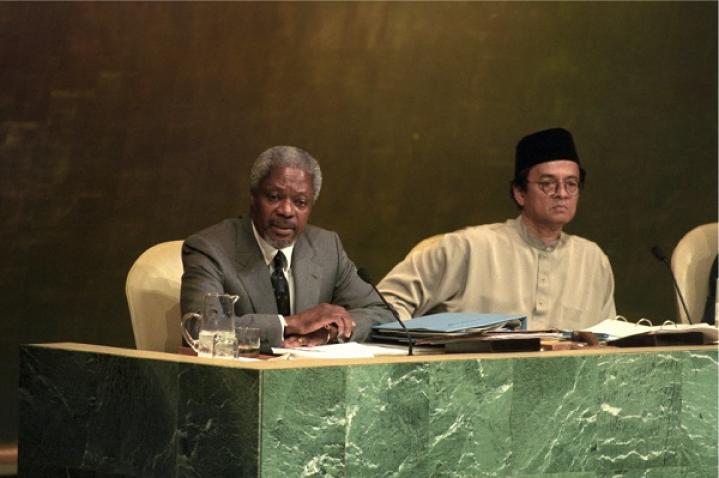
Special Session of the UN General Assembly
23-27 june 1997.

Millennium Summit
6-8 september 2000.
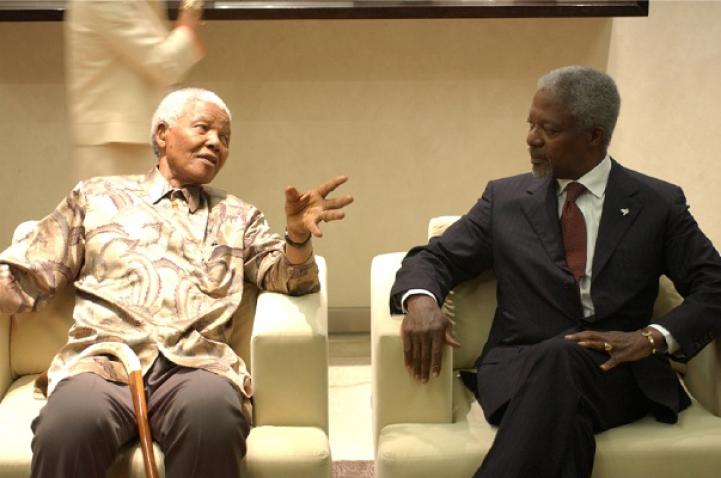
World Summit on Sustainable Development
26 august-4 september 2002, johannesburg, south africa.
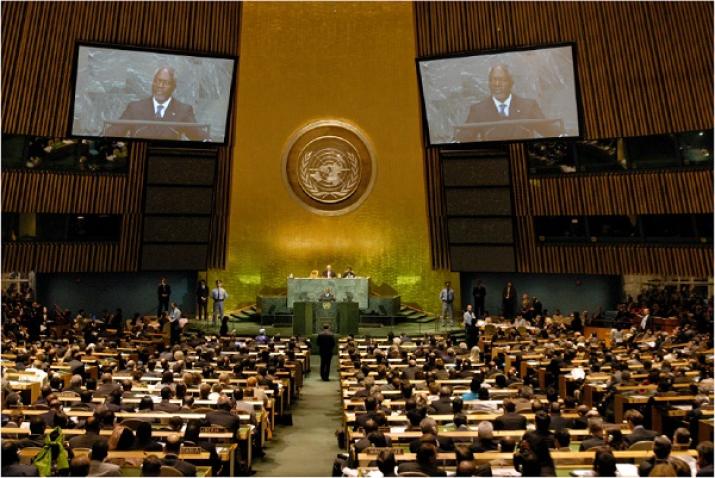
World Summit
14-16 september 2005.
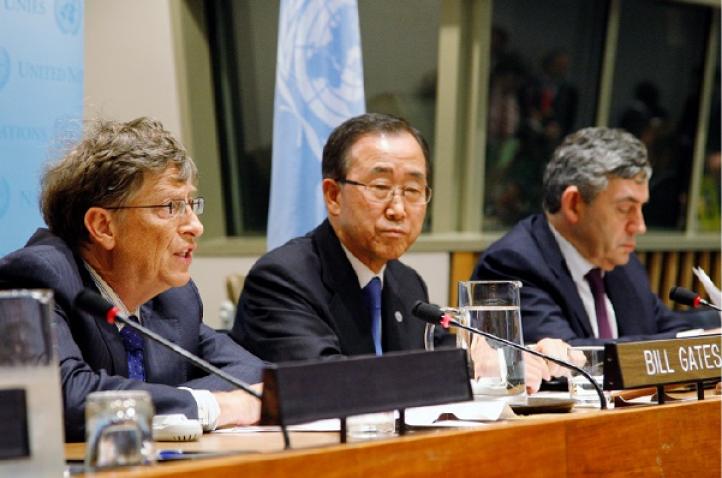
High-level Meeting on the Millennium Development Goals
22-25 september 2008.
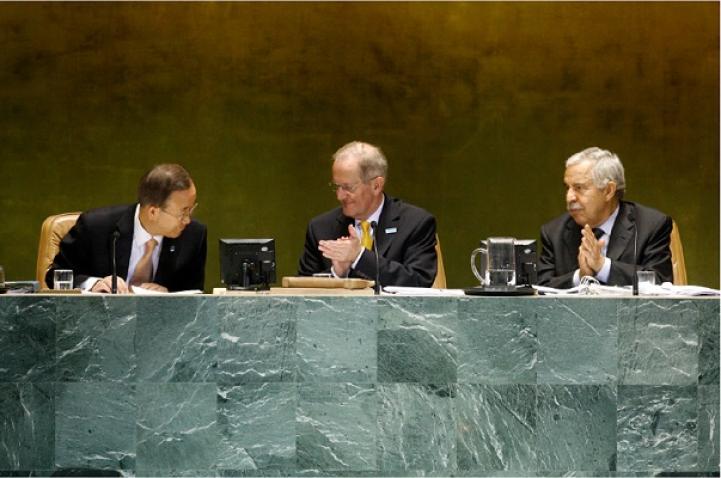
Millennium Development Goals Summit
20-22 september 2010.

United Nations Conference on Sustainable Development
20-22 june 2012.
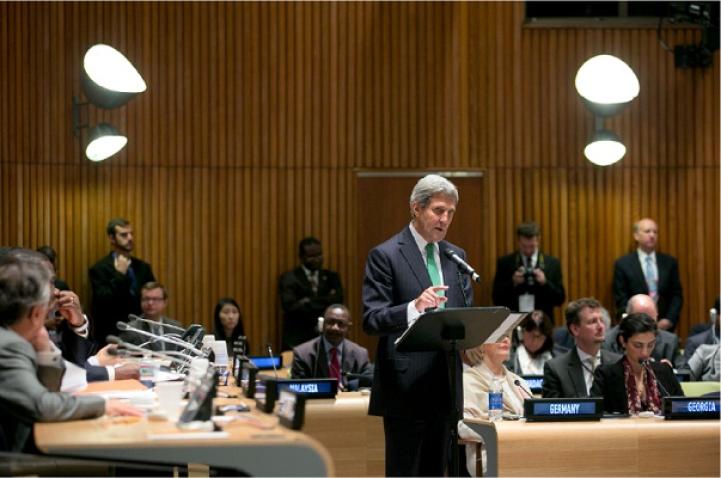
Special Event towards Achieving the Millennium Development Goals
23-25 september 2013.

United Nations Summit on Sustainable Development
25-27 september 2015.
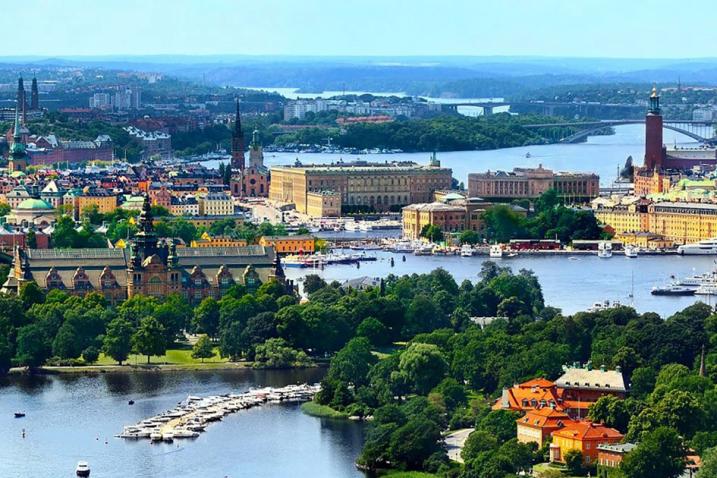
Stockholm+50
2 - 3 june 2022 stockholm, sweden.
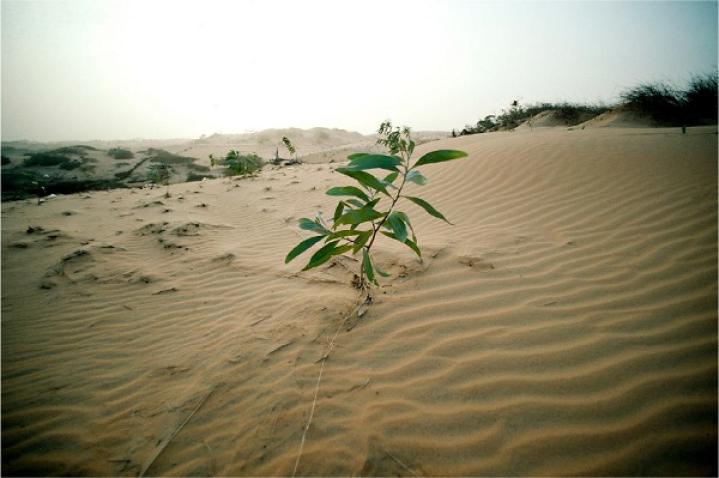
Sustainable Development: 2020 and Beyond
The year 2020 marked the start of the Decade of Action to deliver the Sustainable Development Goals by 2030. It is a critical period to advance a shared vision and accelerate responses to the world's gravest challenges – from eliminating poverty and hunger to reversing climate change. Yet, in only a brief period of time, the precipitous spread of the novel coronavirus turned a public health emergency into one of the worst international crises of our lifetimes, changing the world as we know it. The Sustainable Development Goals Report 2020 presents an overview of progress towards the SDGs before the pandemic started, but it also looks at some of the devastating initial impacts of COVID-19 on specific Goals and targets. The report was prepared by the United Nations Department of Economic and Social Affairs in collaboration with over 200 experts from more than 40 international agencies, using the latest available data and estimates.
Five years since the adoption of the Sustainable Development Goals, the 2020 Report notes that progress had been made in some areas, such as improving maternal and child health, expanding access to electricity and increasing women’s representation in government. Yet even these advances were offset elsewhere by growing food insecurity, deterioration of the natural environment, and persistent and pervasive inequalities.
Now, in only a short period of time, the COVID-19 pandemic has unleashed an unprecedented crisis, causing further disruption to SDG progress, with the world’s poorest and most vulnerable affected the most.
Using the latest data and estimates, this annual stocktaking report on progress across the 17 Goals shows that it is the poorest and most vulnerable – including children, older persons, persons with disabilities, migrants and refugees – who are being hit the hardest by the effects of the COVID-19 pandemic. Women are also bearing the heaviest brunt of the pandemic’s effects.
Among the key findings:
- An estimated 71 million people are expected to be pushed back into extreme poverty in 2020, the first rise in global poverty since 1998. Lost incomes, limited social protection and rising prices mean even those who were previously secure could find themselves at risk of poverty and hunger.
- Underemployment and unemployment due to the crisis mean some 1.6 billion already vulnerable workers in the informal economy – half the global workforce – may be significantly affected, with their incomes estimated to have fallen by 60 per cent in the first month of the crisis.
- The more than one billion slum dwellers worldwide are acutely at risk from the effects of COVID-19, suffering from a lack of adequate housing, no running water at home, shared toilets, little or no waste management systems, overcrowded public transport and limited access to formal health care facilities.
- Women and children are also among those bearing the heaviest brunt of the pandemic’s effects. Disruption to health and vaccination services and limited access to diet and nutrition services have the potential to cause hundreds of thousands of additional under-5 deaths and tens of thousands of additional maternal deaths in 2020. Many countries have seen a surge in reports of domestic violence against women and children.
- School closures have kept 90 per cent of students worldwide (1.57 billion) out of school and caused over 370 million children to miss out on school meals they depend on. Lack of access to computers and the internet at home means remote learning is out of reach of many. About 70 countries reported moderate to severe disruptions or a total suspension of childhood vaccination services during March and April of 2020.
- As more families fall into extreme poverty, children in poor and disadvantaged communities are at much greater risk of child labour, child marriage and child trafficking. In fact, the global gains in reducing child labour are likely to be reversed for the first time in 20 years. The report also shows that climate change is still occurring much faster than anticipated. The year 2019 was the second warmest on record and the end of the warmest decade of 2010 to 2019. Meanwhile, ocean acidification is accelerating; land degradation continues; massive numbers of species are at risk of extinction; and unsustainable consumption and production patterns remain pervasive.
The report also shows that climate change is still occurring much faster than anticipated. The year 2019 was the second warmest on record and the end of the warmest decade of 2010 to 2019. Meanwhile, ocean acidification is accelerating; land degradation continues; massive numbers of species are at risk of extinction; and unsustainable consumption and production patterns remain pervasive.

IMAGES
VIDEO
COMMENTS
Opens Calls for Best Tourism Villages 2024. According to the first UNWTO World Tourism Barometer of the year, international tourism ended 2023 at 88% of pre-pandemic levels, with an estimated 1.3 billion international arrivals. The multi-dimensional nature of the tourism sector, combined with the dynamics of the source of investment capital ...
Following an IUOTO initiative, the United Nations Conference on Tourism and International Travel meets in Rome. This conference adopts a series of recommendations on the definition of the terms 'visitor' and 'tourist' regarding international statistics; the simplification of international travel formalities, and a general resolution on ...
UN Tourism (UNWTO until 2023) is a specialized agency of the United Nations which promotes responsible, sustainable and universally accessible tourism.Its headquarters are based in Madrid, Spain.Other offices include: a Regional Support Office for Asia and the Pacific in Nara, Japan and a Regional Office for West Asia in Riyadh, Saudi Arabia.. UN Tourism promotes tourism and serves as a global ...
UN Tourism has again placed the focus on tourism investments, bringing together public and private sector leaders in Tirana. The "Tourism Investments and Economic Development in Europe" conference, jointly organized with Ministry of Tourism and Environment of Albania, was held within the framework of the UN Tourism Regional Commission for ...
Title United Nations Conference on International Travel and Tourism, Rome, 21 August-5 September 1963 : recommendations on international travel and tourism. Access English: E_CONF-47_18-EN - PDF; Español: E_CONF-47_18-ES - PDF; Summary. pt. 1. Definition of "visitor" and "tourist" for the purposes of international statistics -- pt. 2.
The United Nations Conference on Trade and Development (UNCTAD) estimates that tourism's woes will cause global GDP to decline by as much as 1.5 per cent to 2.8 per cent. Furthermore, the fall ...
Following is UN Secretary-General António Guterres' message for the World Tourism Day "Rethinking tourism", observed on 27 September: ... This year's United Nations Ocean Conference, where the global community and the tourism sector committed to building a legally binding agreement on plastics pollution by 2024, represents an important ...
United Nations World Tourism Organization: Supporting Jobs and Economies through Travel & Tourism: A Call for Action to Mitigate the Socio-Economic Impact of COVID-19 and Accelerate Recovery;
United Nations expert group on international travel statistics in 1967 and endorsed by the United Nations Statistical Commission in 1968. 3. The present report has been prepared on the basis of the resolutions adopted by the International Conference on Travel and Tourism Statistics held in Ottawa in June 1991. It also takes into account
The Forum, "Charting a new development course in a changing world", will unite leaders from across countries and industries to catalyze a new course for development.
The economic contribution of tourism (tourism direct GDP) was estimated at $1.9 trillion in 2021, higher than the $1.6 trillion recorded for 2020, but still well below the pre-pandemic value of $3 ...
6 International Tourism ighlights - 2023 Edition (Revised and updated, October 2023) • International tourism experienced a 13% increase in 2021 to reach 458 million arrivals, 51 million more than in 2020, but still 69% less than the pre-pandemic levels of 2019 (1,464 million). • Export revenues from international tourism also
From 2016, and every year, OSI organize into the heart of the United Nations hemicycle the International Annual Conference on Tourism and Travel for Sustainable Development, in order to allow all the actors and operators in these domains to exchange, meet and share directly and at the largest international level. Fair Tourism
The COVID-19 pandemic has been a health and economic crisis with devastating effects on developing countries, especially those dependent on tourism. As governments have attempted to protect their populations, lockdowns, quarantines, and major restrictions on national and international mobility were implemented. This, coupled with the decision of consumers to limit international travel resulted ...
The General Assembly of the World Tourism Organization met for the 25th time in Samarkand, Uzbekistan. ... Secretary-General, United Nations Conference on Trade and Development (UNCTAD), by Juan Carlos Salazar Gómez, Secretary-General of the International Civil Aviation Organization, by Vice-President of the European Commission, Margaritis ...
The crash in international tourism due to the coronavirus pandemic could cause a loss of more than $4 trillion to the global GDP for the years 2020 and 2021, according to an UNCTAD report published on 30 June. The estimated loss has been caused by the pandemic's direct impact on tourism and its ripple effect on other sectors closely linked to it.
The General Assembly adopted four resolutions today on issues ranging from sustainable tourism to durable peace in Africa to the World Social Summit in 2025, ... "If the United Nations cannot do anything to prevent aggression, then there is no longer any justification for this organization to exist," he emphasized. ... Fifth United Nations ...
The Conference will further highlight how cultural tourism can make an important contribution to the United Nations' 2030 Sustainable Development Agenda and its 17 Sustainable Development Goals (SDGs) in terms of poverty reduction, fighting inequality and promoting inclusive growth.
United Nations Headquarters, New York ... PREPARES PRESS CONFERENCE FOR 9 APRIL. ... and is focusing on critical global challenges with respect to debt sustainability, tourism, transport ...
December 1989, which was adopted when the nations of the world called for the United Nations Conference on Environment and Development, and on the acceptance of the need to take a balanced and integrated approach to environment and development questions. 1.3. Agenda 21 addresses the pressing problems of today and also aims at preparing the ...
The United Nations Climate Change Conference is increasingly acknowledging the dynamic interaction between climate and oceans, as a stable climate maintains the health of marine ecosystems and the undisturbed functioning of the oceans limits the impacts of climate change. ... contributing substantially to the global economy. From tourism to ...
28 August 2017. Today, tourism generates 10% of the world's GDP, 1 in every 10 jobs and 30% of world trade in services. It is key to many countries' economies and livelihoods. The United Nations General Assembly has designated 2017 as the International Year of Sustainable Tourism for Development, underscoring its power to help eradicate poverty.
The United Nations Conference on Environment and Development (UNCED), also known as the 'Earth Summit', was held in Rio de Janeiro, Brazil, from 3-14 June 1992.
Europe. 22 Nov 23. The World Tourism Organization (UNWTO), the Government of La Rioja and the Ministry of Industry, Commerce and Tourism of Spain, will organize the 7th UNWTO Global Conference on Wine Tourism on 22-24 November 2023 in Logroño (La Rioja), Spain, under the theme ' Inclusive, sustainable and digital wine tourism: Building ...
The United Nations Country Team (UNCT) for Mauritius and Seychelles held their Annual Retreat entitled "Delivering Stronger, UNited for People, Prosperity and Planet" from the 3rd to the 5th of April of 2024 in Mauritius. It brought together UN agencies and their partners - Government, private sector and civil society - to strengthen cooperation and identify opportunities for new ...
6th UNWTO Global Conference on Wine Tourism. Europe; 19 Sep 22 The World Tourism Organization (UNWTO) and the Government of Italy organized the 6th UNWTO Global Conference on Wine Tourism on 19-21 September 2022 in Alba, Italy.. Innovating in experiences, marketing and partnerships creates a wide range of opportunities for all members of the value chain at a critical moment for travelers ...
BACKGROUND. The history of sustainable development in the United Nations dates back to the United Nations Conference on the Human Environment, held in Stockholm, Sweden, in 1972. The United ...